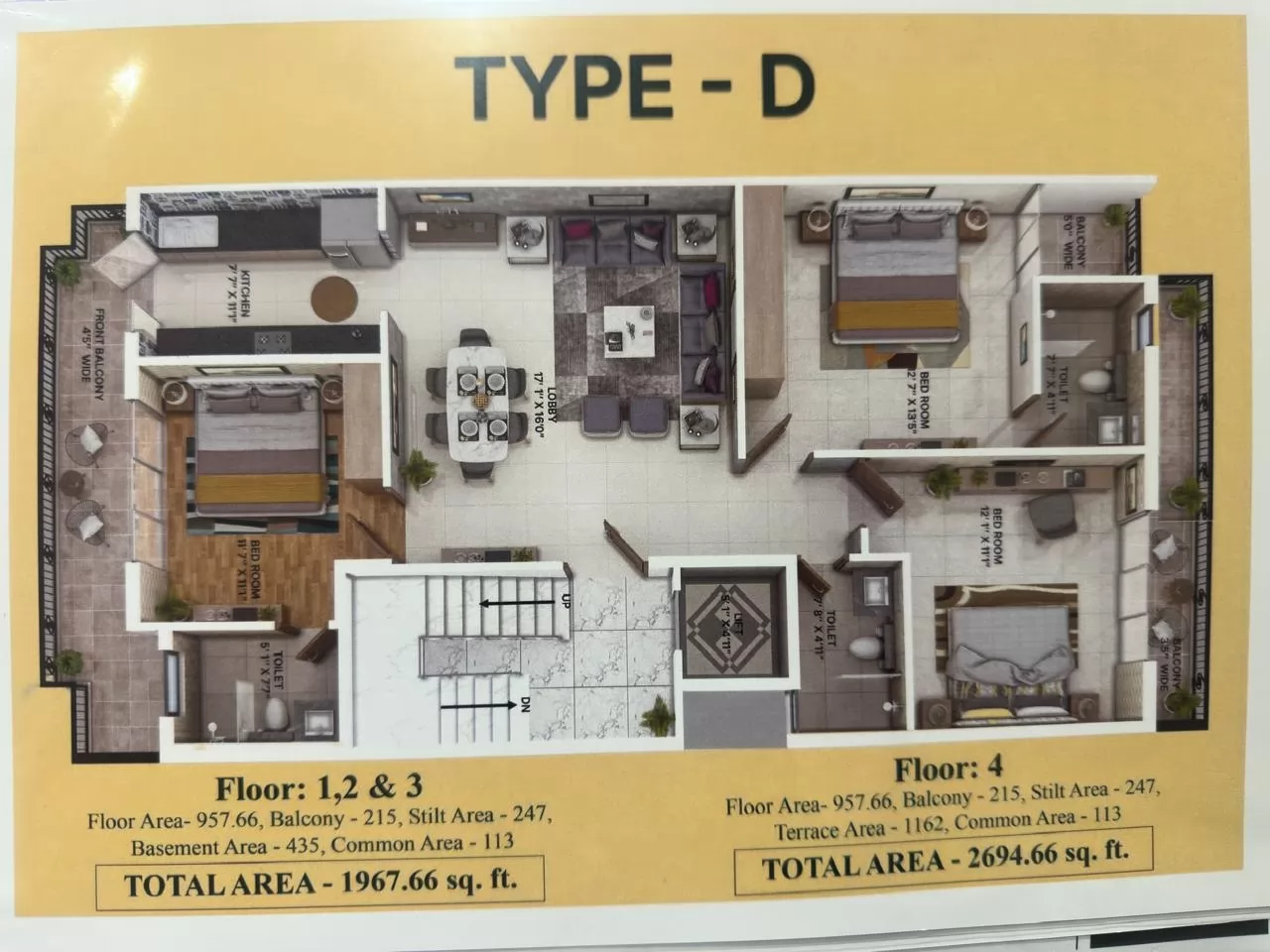Why is it essential to buy a RERA registered property in India?
Bricksnwall Trusted Experts

The real estate business in India has undergone
considerable reforms, one of the most significant being the implementation of
the Real Estate (Regulation and Development) Act of 2016, also known as RERA.
This legislation was passed to protect homebuyers, increase openness, and
encourage accountability in the real estate industry. Purchasing an
RERA-registered property has become an important factor for purchasers due to
its numerous perks and legal protections. This essay will look at why
purchasing an RERA-registered home is beneficial and important in today's real
estate market.
What is the RERA?
RERA was developed with the primary goal of protecting homebuyers' interests and increasing openness in real estate transactions. Previously, difficulties like as project delays, a lack of accountability, and developers' insufficient disclosure of project data hampered RERA implementation in the real estate sector. RERA requires that real estate projects and agents register with state-level regulatory bodies.
The primary provisions of the RERA Act are:
Before advertising or selling their projects,
developers must first register them with the state RERA authorities.
Promoters must give all project-related
information, such as layout plans, approvals, land titles, and delivery
schedules.
Developers must deposit 70% of the monies obtained
from customers in a separate escrow account to ensure that they are used solely
for project construction.
RERA imposes strong consequences for noncompliance,
including fines and imprisonment for developers.
Why purchase RERA-registered properties?
Transparency in Project Details
One of the most significant benefits of acquiring an RERA-registered property is the increased transparency it provides. Prior to RERA, homebuyers frequently encountered insufficient or false information about the project. Developers may change the project plan, facilities, or other requirements without prior notification. RERA requires developers to disclose full information about the project, which includes:
- Land Title and Ownership
- Approved blueprints and layout,
- ongoing legal proceedings details
- completion timetable,
- offered amenities.
Buyers have the right to see all of this information on the RERA website, ensuring that the transaction is transparent and trustworthy. This level of transparency enables purchasers to make educated selections while also lowering the risk of investing in projects that may encounter legal or logistical challenges.
Timely project completion
Delays in project delivery were a typical complaint among homeowners prior to the RERA Act. Projects were frequently delayed for several years, leaving customers in uncertainty. RERA solves this issue by establishing hard timelines for project completion. Developers are now legally required to complete the project by the date specified at the time of registration. If companies fail to reach this deadline, they must compensate homebuyers.
Furthermore, RERA assures that developers can only delay the project for valid reasons. Buyers can register complaints with the RERA authorities if they suspect foul play or excessive delays. In the event of delays, RERA enables buyers to:
- Claim compensation for the delay.
- Withdraw from the project and receive a full
refund including interest.
- Continue with the project and claim interest for the delayed period.
Grievance Redressal Mechanism
One of the most significant benefits of RERA is the
grievance resolution system it provides to homebuyers. Prior to RERA,
purchasers had few options for resolving difficulties such as project delays,
changes in project specifications, or non-delivery of promised facilities.
Legal disputes were frequently lengthy and costly, and the power dynamic
between developers and buyers was skewed in favour of the former.
RERA has established state-level Real Estate Regulatory Authorities to resolve complaints about real estate transactions. Homebuyers can register complaints against developers directly with the RERA administration, which must handle them within 60 days. This quick and effective grievance redressal system enables homebuyers to seek justice without becoming bogged down in protracted court proceedings.
Furthermore, if buyers are dissatisfied with the RERA authority's judgement, they can file an appeal with the Real Estate Appellate Tribunal and, if required, escalate the case to the High Court. This multi-level grievance redressal framework guarantees that homebuyers have access to justice at several stages, offering multiple options for resolving conflicts.
Interest on delayed payments
RERA also addresses the issue of delayed payments
by both homeowners and developers. Before RERA, if a buyer delayed payment,
they faced severe penalties, whereas developers faced no such consequences for
delaying the project. RERA has taken a balanced approach, ensuring that the
interest rate paid on late payments is same for both parties.
For example, if a homebuyer does not make a payment on time, they must pay interest to the developer. Similarly, if the developer delays the completion of the project, they must pay interest to the homebuyer throughout the delay. This parity in the interest rate structure maintains fairness and prevents both parties from deferring their commitments.
Quality Assurance
Another essential feature of RERA is its emphasis
on quality assurance. The Act requires developers to provide a five-year
warranty on building quality, which includes structural faults and bad
workmanship. If faults surface within five years of possession, the developer
must repair the problem at no additional expense to the homebuyer.
This provision is critical in ensuring that homeowners obtain a residence that meets the stipulated building standards. It also holds developers accountable for the project's materials and craftsmanship, supporting greater real estate sector standards.
No revisions to project plans without the buyer's
approval.
Before RERA, developers frequently changed project
plans, layouts, or facilities without the buyer's permission. These changes
might occasionally impair the value or utility of the property for homebuyers,
causing unhappiness.
Under RERA, any changes to the project's plans must be approved by two-thirds of the homebuyers. This rule empowers consumers and ensures that developers cannot change the project after selling the units. It encourages fairness and transparency in the project development process, ensuring that homebuyers receive exactly what they were promised during the transaction.
Legal protection and confidence for buyers
The major purpose of RERA is to instill confidence
in homebuyers by offering legal protection. Previously, the real estate
industry was regarded as extremely uncontrolled, with buyers sometimes feeling
helpless in the face of powerful developers. RERA has changed this by creating
a framework that protects homeowners' interests while holding developers
accountable for their behaviour.
Transparency, accountability, timely project delivery, and a strong grievance redressal process all contribute to homebuyers' increased confidence in real estate investment. RERA's legal provisions serve as a safety net for homebuyers, making the real estate market more accessible and less hazardous for individuals and families.
Impact on developers: increased accountability
While RERA primarily protects homebuyers, it has
also resulted in favourable improvements in the attitude of developers.
Developers are now forced to be more accountable and open in their
transactions. They can no longer take advantage of loopholes or homebuyers by
making misleading promises or mismanaging finances.
RERA has caused a transformation in the real estate industry, encouraging developers to follow best practices, maintain openness, and complete projects on schedule. This greater responsibility benefits both homebuyers and the industry by encouraging healthy competition and instilling trust in the market.
RERA registered versus RERA Authorized
When navigating the real estate market, you may come across two often-used terms: RERA registered and RERA authorized. While they appear similar, they have different meanings. Understanding the distinction is critical for homebuyers to make informed selections and ensure that the property they invest in meets legal and regulatory requirements.
What is RERA registered for?
A RERA-registered project has been officially
registered with the relevant state's RERA authority, as required by the Real
Estate (Regulation and Development) Act of 2016. This registration indicates
that the developer has submitted all of the relevant information about the
project, including:
- Current Project Status
- Timelines for completion
- Approved layout plans
- Financial details
By registering the project, the builder undertakes to follow RERA's stringent requirements, which promote transparency and accountability. Homebuyers can put their trust in an RERA-registered property because it is legally required to adhere to strict quality and integrity guidelines. This legal structure gives consumers piece of mind by holding developers liable for any delays or errors in the project.
What does RERA approve?
RERA approved often refers to a project that has
received the appropriate permissions from the state's RERA board to build a
property. However, this phrase is not legally defined in the RERA framework.
Builders frequently use this word to indicate that the house complies with
Government of India rules.
Despite the term's popular usage, buyers must
conduct extensive research on any property marked as RERA-approved. This
research should involve reviewing the project's official status on the RERA
website, confirming the builder's reputation, and ensuring that all promised
requirements are met.
Customers should use a variety of measures to
validate the validity of a home, including digital searches, peer reviews, and
an examination of the builder's previous projects. This thorough analysis can
help purchasers make an informed decision.







